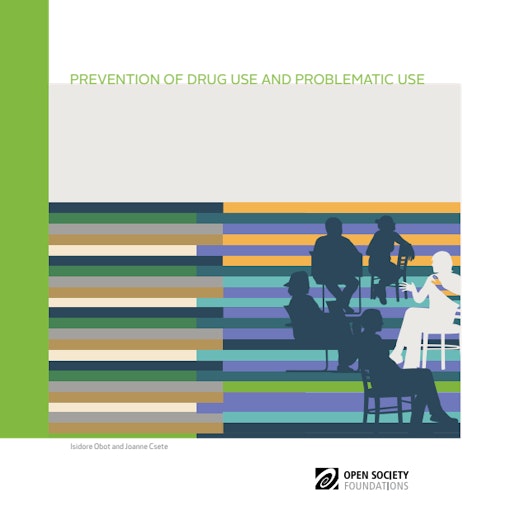“Scared Straight” Anti-Drug Programs Aren’t Scaring Kids at All
By Joanne Csete
Political leaders love the idea of preventing drug use among young people by “scaring them straight,” a strategy on which millions of dollars are spent, especially in the United States.
The problem is, generally speaking, these programs haven’t worked.
A new report from the Open Society Foundations, Prevention of Drug Use and Problematic Use, details a large body of research showing that programs that aim to keep young people abstinent forever, especially by exaggerating the harms of drugs, are unrealistic and may even be counterproductive. When the only goal of prevention “education” is to keep kids away from drugs, an opportunity is lost to help them know how to protect themselves from the harms of drugs.
In the United States, a school-based drug prevention program called D.A.R.E. (Drug Abuse Resistance Education) was implemented at one point in 80 percent of school districts across the country. With abundant government funding, the program centered on an abstinence-oriented “just say no” message and portrayed all drugs as immediately dangerous. But independent evaluations found that it did not lead to abstinence or even to delaying first drug use among young people.
The United States also invested heavily in a major mass media program on the dangers of drug use with the goal of promoting abstinence, known as the National Youth Anti-Drug Media Campaign. A peer-reviewed evaluation of this effort found that it did not reduce or delay use of drugs and, in fact, may have made some young people more likely to try marijuana because some of the ads gave the impression that “everyone” was smoking marijuana.
For other abstinence-oriented programs that, for example, attempt to frighten young people about the harms of a single incident of drug use, evaluations have found that young people tended to disbelieve the exaggerations. They see their peers experimenting with drugs without having their lives ruined, their teeth fall out, or their brains debilitated, and the fear-based prevention message about immediate danger does not ring true.
Perhaps learning from these experiences, experts from around the world have called for a different goal for drug prevention programs—not preventing all drug use, which is unlikely, as many young people are bound to experiment with drugs, but rather preventing the worst harms of drugs for the individual and society. In addition, academic experts, the Organization of American States, the European Union, and the UN Office on Drugs and Crime call for drug prevention programs that are informed by the reality of what drives people to use drugs in the first place, rather than the fantasy of a drug-free world or an attempt to frighten people away from drugs.
Drug prevention programs have too often been one more example of rejecting the idea of harm reduction in drug policy. Harm reduction is a central element of public policy, and particularly public health policy in many domains. Rather than stop all vehicular traffic, societies impose speed limits, require seat belts, and otherwise try to limit the chance of road accidents and other harms. Rather than ban alcohol, most governments restrict its sale to minors, warn the public of the danger of drinking during pregnancy, and prohibit driving under the influence. But when it comes to drugs, a focus on reducing harms is lost in the dominant and unrealistic message of abstinence that still informs too many prevention programs and other drug policies.
Even the UN Commission on Narcotic Drugs, which itself has too often indulged in “drug-free world” fantasies, in 2014 passed a resolution noting that drug prevention programs are often not sufficiently subjected to independent evaluation and should be rigorously based on scientific evidence. That has too rarely been the case when it’s easy to throw money at preaching abstinence to young people in the futile pursuit of drug-free societies.
Joanne Csete is a researcher for the Open Society Public Health Program and Global Drug Policy Program.

